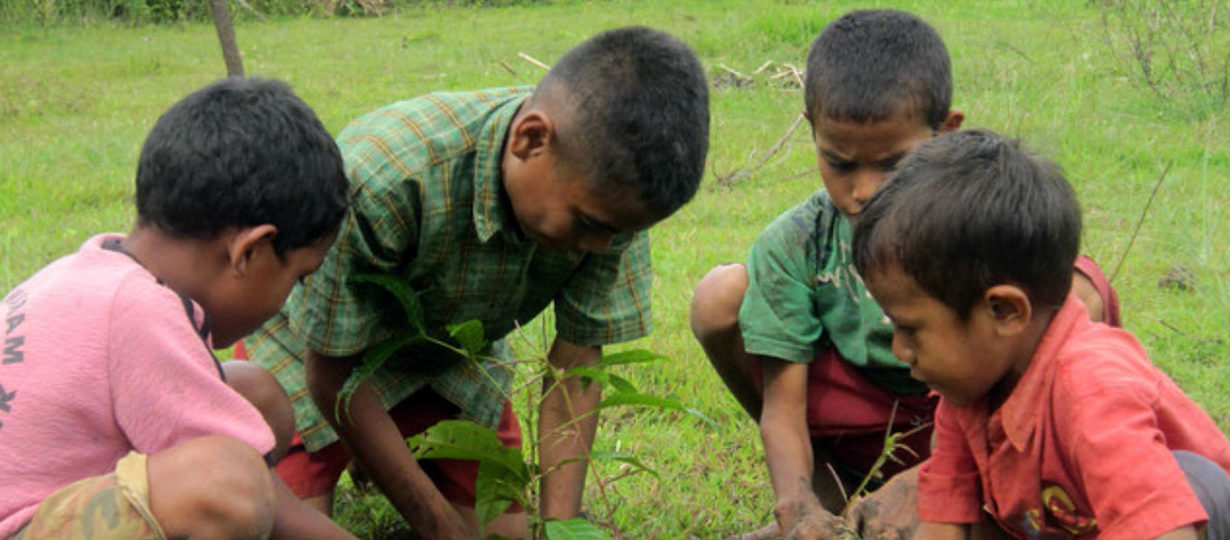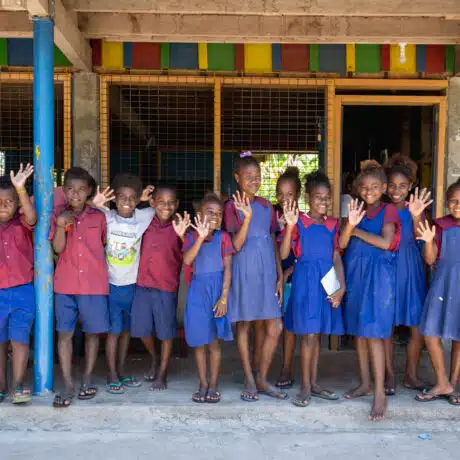News and Stories - Climate Change - 12 December 2018
Climate Change: Why kids should care

On the 30th of November 2018 thousands of students worldwide left their schools to strike climate change inaction from their governments. It was a moment of true unity amongst the youth of society, a moment that signified a shared demand for action. But why climate change? Why did so many young people feel the need to protest this issue?
On a personal level, climate change is important because the state of the world and the lives of other children, myself, and future generations matter to me.
As a fifteen year old girl from Melbourne, Australia, who has lived, and will continue to live a very privileged life, I acknowledge that the extent to which I have endured the effects of climate change differ substantially to those from more vulnerable nations.
For the children that Plan International work with, climate change means a shortage of food, a higher risk of disease, a poorer quality of water, and a threat to life. It is these children who have contributed the least to climate change and yet it is these children who suffer the most.
If we do not take more action on climate change then every single child will feel the devastating effects. Every single child will live in a world destroyed by the decisions made by those before them.
I know that I want to live in a world where every individual has access to food, water and shelter. I know that I want to live in a world where oceans are abundant with sea life, where animals have thriving ecosystems. I want my children, my grandchildren and their grandchildren to live in the same world. I and other young people however, will not have the luxury of living in this world if fossil fuels continue to be burnt, if climate policy is not properly introduced.
Why should children be concerned?
- Oil, Gas and coal are predicted to run out in 150 years
- More greenhouse gases are in our atmosphere than any time in human history
- Australia’s Great Barrier reef is 90% bleached
- 2016 was the warmest year on record and temperature is only going to get warmer
- Over the past century the Global mean sea level (GMSL) has risen between 4 to 8 inches and will continue to rise
Climate change is the most pressing issue facing humanity. If action is not taken then children will continue to strike and protest. I know that I will. Because the future of society, my future, relies on it.
By Eloisa Moses-McMahon
Our work on climate change
Natural disasters made worse by climate change are threatening the lives of millions of children and communities all over the world.
We work with local partners to:
- Design evacuation plans and build early warning systems to alert communities about disasters
- Educate communities on the effects of climate change and to prepare for and prevent crisis
- Empower young people to lead discussions on climate and natural disasters
- Setting up village savings and loans programs to help families rebuild
- Creating school vegetable gardens to ensure children never go hungry
- Preserving coastlines from erosion to help communities protect their homes
Together, we can tackle climate change where it’s hitting people the hardest, and help children and communities everywhere survive storms.
These projects are funded by the Department of Foreign Affairs and Trade (DFAT), Australian NGO Cooperation Programs (ANCP) and complemented with funds generously donated to Plan International Australia from the Australian public.




